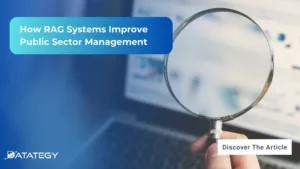papAI Academy : Uzo C Okoye papAI Academy is a...
Read MoreAgentic AI The Next Big Leap in Business Transformation
Table of Contents
ToggleAs technology continues to advance at an unprecedented pace, artificial intelligence (AI) has progressed beyond basic task automation to tackle more intricate decision-making challenges. With the increasing sophistication of AI systems, the demand for autonomous, intelligent agents capable of independent operation, learning, and adaptation has reached new heights. This is the role that Agentic AI fulfills.
This innovative method is a paradigm shift that has the potential to redefine the limits of artificial intelligence (AI) capabilities, not just another industry buzzword. Let’s look at why tech leaders are interested in agentic AI and how it might change the way businesses operate.
According to a Capgemini survey, 10% of organizations are already using AI agents, with more than half planning to use them within the next year, and 82% planning to integrate them within the next three years.
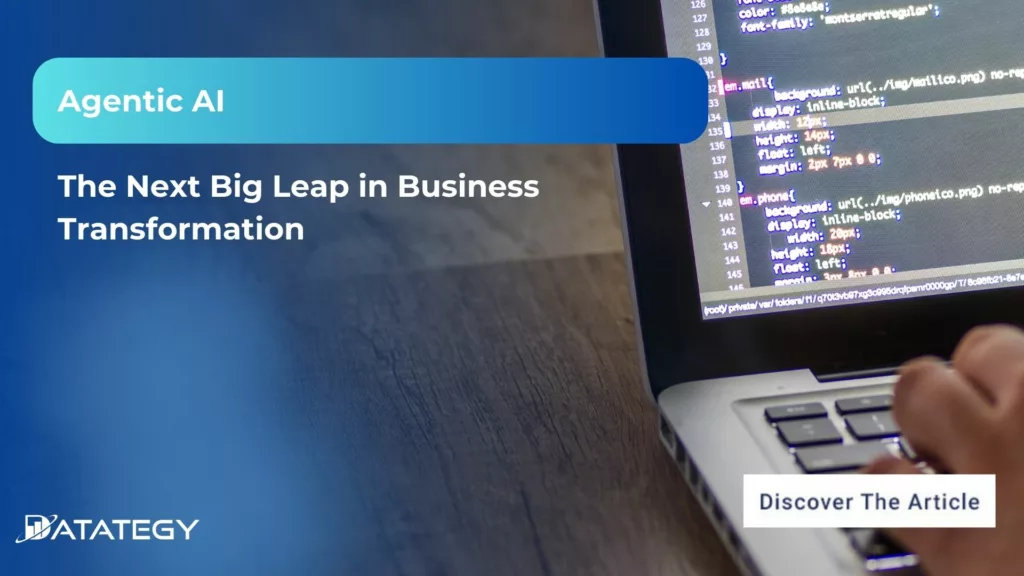
What is Agentic AI?
The next stage of artificial intelligence development is represented by the shift to agentic AI. The capacity to function independently, learn from mistakes, and adjust to novel circumstances without human assistance is what distinguishes this new breed of AI.
Advanced algorithms and enormous volumes of data are used by agentic AI systems to solve issues, make decisions, and streamline procedures in a variety of sectors. The need for agentic AI is increasing as more companies realize the potential of these intelligent agents, pointing to a time when machines will not only help but also spur efficiency and innovation in our quickly evolving world.
What is the Role of Agentic AI and how does it Differ from Traditional AI Models?
With its novel “chaining” ability, agentic AI distinguishes itself from conventional AI models by being able to respond to a single request with a series of actions. Complex goals can be broken down into smaller, easier-to-manage steps by agentic AI, in contrast to conventional AI, which usually processes tasks in isolation. This implies that rather than just offering a single solution, Agentic AI can create a thorough action plan that leads users through every stage of a project, improving productivity and clarity.
For example, an agentic AI system would not simply provide a design template when given the task of creating a website. Rather, it would create a set of precise objectives on its own, including choosing a content management system, creating the first draft of the content, creating the layout, and search engine optimization. The user would follow a logical flow from concept to completion as each step is built upon the one before it. Instead of being a passive tool for answering queries, this chaining capability changes how users engage with AI, turning it into a proactive partner in accomplishing challenging tasks.
What are the Benefits of using Agentic AI
There are several advantages for using Agentic AI in your organization:
Improved Complex Task Automation
Agentic AI is particularly good at automating complicated procedures, which enables it to divide difficult jobs into smaller, more manageable steps. Human teams are less burdened by this automation, which allows them to concentrate on high-value tasks and strategic initiatives. Organisations can thus greatly increase operational effectiveness and productivity.
Teams can focus their time and efforts on more strategic projects, like creating new products or improving customer relations, thanks to the efficiency that automation provides. Additionally, because Agentic AI follows preset guidelines and processes, it guarantees consistency in task execution. As a result, companies can expedite their operational procedures while maintaining high standards of quality.
Flexibility in the Face of Changing Situations
The amazing versatility of agentic AI is among its most alluring qualities. Conditions can shift quickly in the fast-paced business world of today for a number of reasons, including consumer feedback, market trends, and even unanticipated difficulties. In order to adapt to these changes, traditional AI systems frequently need a great deal of human supervision. The ability of agentic AI to learn and change on its own, however, allows it to stay useful and relevant.
Its machine learning capabilities, which enable it to process data in real-time and make well-informed adjustments, are primarily responsible for this adaptability. Agentic AI, for instance, can automatically modify its response tactics, prioritize particular queries, or even update its knowledge base to reflect the most recent information if it detects a spike in questions about a new product in a customer support application. This indicates that the system continuously optimizes its operations based on the circumstances, demonstrating that it is both proactive and reactive.
Enhanced Cooperation
Due to agentic AI functions as an intelligent partner that facilitates coordination and communication, it improves teamwork. In many organizations, overlapping responsibilities, silos, and poor communication can make it difficult to collaborate. By offering a centralized platform that coordinates teamwork and guarantees that everyone is working towards the same objectives, agentic AI solves these problems.
By making resource allocation and knowledge sharing easier, agentic AI improves teamwork. It can determine each team member’s unique strengths and abilities and recommend the most qualified candidate for a given task. In addition to improving team dynamics, this fosters a collaborative culture that makes it easier for team members to share their knowledge.
Scalability for Future Growth
Agentic AI’s modular architecture makes it simple to add new features or manage heavier workloads without requiring major redesigns. For instance, Agentic AI can modify its algorithms and procedures to take into account a company’s diversification of product offerings or entry into new markets. Because of this flexibility, companies can concentrate on expansion plans without having to worry about outgrowing their IT infrastructure.
The scalability of Agentic AI enables organizations to leverage their data more effectively as they grow. As more data becomes available, Agentic AI can harness this information to refine its learning algorithms and enhance its decision-making capabilities. This continuous improvement process ensures that businesses remain competitive in their industries, as they can harness insights that drive innovation and efficiency.
What is the Earliest Application of Agentic AI in business?
Agentic Rag
The traditional implementation of Retrieval-Augmented Generation (RAG) in the current environment frequently entails a number of steps, such as response generation, synthesis, reclassification, and extraction. Although this pipeline works well in many situations, it is beginning to show its limitations. Many users find the process to be a little stiff and clumsy, which makes it difficult to handle complex queries or information needs that change over time. The increasing need for contextual, real-time responses makes it obvious that a new strategy is required to successfully address these issues.
A new era in AI capabilities is ushered in by Agentic RAG, a game-changer. In contrast to its predecessors, Agentic RAG is intended to be proactive and flexible, utilising cutting-edge agent-based technologies to provide coordinated responses across numerous documents. This method enables it to comprehend the context and applicability of the data being retrieved in addition to providing access to information. Users gain a more comprehensive perspective that improves the calibre and precision of answers as a result.
Agentic RAG can continuously learn and adapt thanks to its agent-driven architecture. This implies that the system can promptly incorporate new documents and data and modify its responses by them. The end result is a more flexible AI that can anticipate user needs, respond to changing situations, and answer questions—making it a useful tool for both individuals and enterprises.
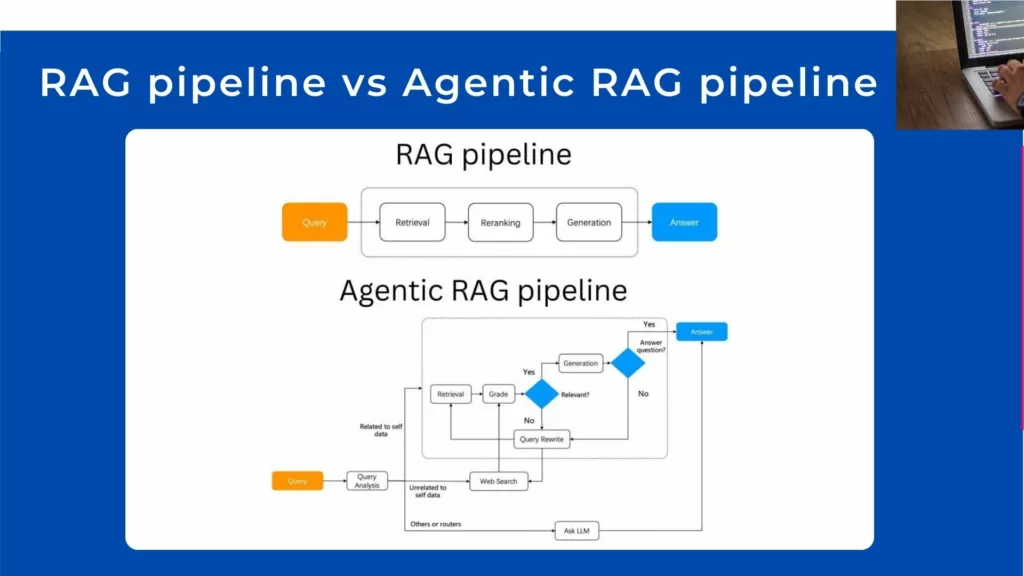
RAG pipeline vs Agentic RAG pipeline
In conclusion, compared to conventional RAG implementations, Agentic RAG marks a substantial advancement. It overcomes the drawbacks of previous systems by fusing proactive intelligence with the capacity to coordinate responses across multiple sources. Adopting Agentic RAG may be the key to achieving new levels of efficacy and efficiency in AI-driven communications as businesses look to improve their information retrieval procedures.
A to Z of Generative AI: An in-Depth Glossary
A form of artificial intelligence called “Generative AI” enables machines to produce text, pictures, and music on their own. By automating activities, improving customization, and encouraging innovation, it is revolutionizing industries by using the power of algorithms and deep learning. This guide will provide you with a solid foundation in Gen AI terminology to help you better understand this exciting field.
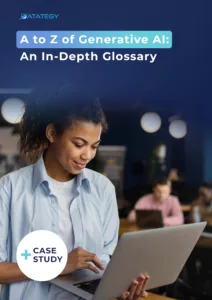
Technical Challenges and Integration with Existing Systems
Organizations must carefully navigate a number of technical challenges when integrating Agentic RAG AI into current systems. Compatibility with legacy systems, which might not be built to integrate easily with contemporary AI technologies, is one of the main issues. Data interchange, workflow automation, and system communication may be hampered as a result.
Businesses frequently use a patchwork of hardware and software, each with unique requirements and constraints. To find possible compatibility problems and make plans for any updates or modifications that may be required, a comprehensive evaluation of the current infrastructure is therefore crucial. By tackling these issues early on, it will be easier to integrate new systems and less likely that ongoing operations will be interrupted.
To get the most out of the Agentic RAG AI system, this training is essential. Organizations can successfully integrate Agentic RAG AI, improving their data retrieval capabilities and overall operational efficiency, by proactively addressing these technical issues and allocating the required funds and training.
What are the Advantages to use papAI in that case?
Here’s an in-depth look at the key features and advantages of this innovative solution:
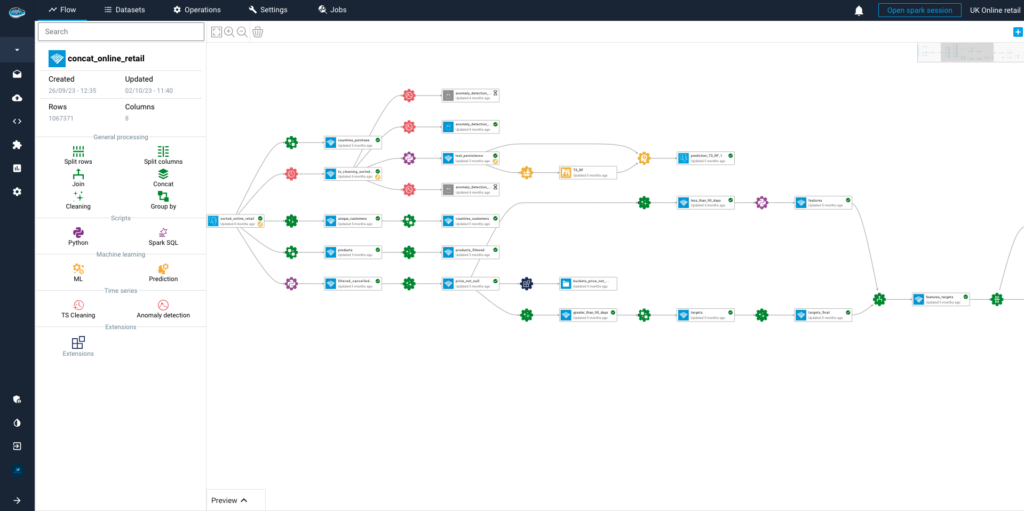
Sovereign Solution: Complete Control Over Data and AI Models
papAI solution emphasis on sovereignty is one of its most notable characteristics. By giving users total control over their data and AI models, it guarantees the security and protection of sensitive data. Sovereignty is a major concern for many businesses, particularly those in sensitive industries like finance, healthcare, or government. This solution ensures that all data stays under the company’s control and is not susceptible to outside influence or third-party providers.
In the current climate, where data privacy regulations are becoming more stringent, this level of control is crucial. Businesses can fully comply with local, national, and international data protection laws, such as the GDPR in Europe, without worrying about ownership loss or data breaches. Additionally, this sovereignty extends to the AI models themselves, allowing companies to manage, modify, and utilise them as required without being constrained by a specific vendor ecosystem.
Freemium Model and Pay-As-You-Go Billing: Flexibility for All Stages
Our AI solution’s pay-as-you-go billing structure and freemium business model demonstrate its fundamental flexibility. For businesses that are just beginning to explore AI or are engaged in small-scale experimental projects, the freemium model provides an excellent place to start. This makes it easier for companies to test AI before making a bigger investment because they can use the platform’s core features without having to pay for them upfront.
When projects grow and businesses begin to scale their AI initiatives, the pay-as-you-go billing model ensures that they only pay for what they use. This type of flexible pricing structure should be used by businesses that are expanding or that have unpredictable data and computational requirements.
Unlimited Dataflow Capacities: Managing Large Data Sets with Ease
For companies managing complex workflows or large data sets, the platform’s infinite dataflow capabilities are crucial. Data is growing quickly in today’s business world, and organizations need to be able to handle massive amounts of data without any disruptions or slowdowns. The AI solution ensures that even when handling massive amounts of data, processes will continue to run smoothly and effectively.
By guaranteeing continuous data flow, businesses can preserve operational efficiency and obtain insights in real-time, which supports well-informed decision-making and process optimization. Being able to process data continuously and without restrictions will be extremely beneficial to businesses attempting to stay competitive in a data-driven world, whether that data is being used for product design improvement, logistics management, or customer behavior analysis.
Deploy your own Agentic RAG model using papAI solution
Deploy your own Agentic RAG model using the papAI solution and enhance your organization’s information retrieval capabilities. papAI is a unified, end-to-end AI platform that allows you to build and manage your models seamlessly.
Our solution enables you to utilize proactive, agent-driven intelligence to provide accurate, context-aware responses across multiple documents. With papAI, you can benefit from an AI that learns and adapts as your data evolves, helping to streamline your operations and improve overall efficiency.
If you’re looking to move beyond traditional systems, now is the time to explore the potential of Agentic RAG. Book a demo today to see how easy it is to implement your own model tailored to your specific needs. Let’s work together to optimize your business processes!
One platform, with hundreds of possibilities.
Interested in discovering papAI?
Our AI expert team is at your disposal for any questions
How Law Firms Use RAG to Boost Legal Research
How Law Firms Use RAG to Boost Legal Research RAG...
Read MoreHow RAG Systems Improve Public Sector Management
How RAG Systems Improve Public Sector Management The most important...
Read MoreScaling RAG Systems in Financial Organizations
Scaling RAG Systems in Financial Organizations Artificial intelligence has emerged...
Read More

